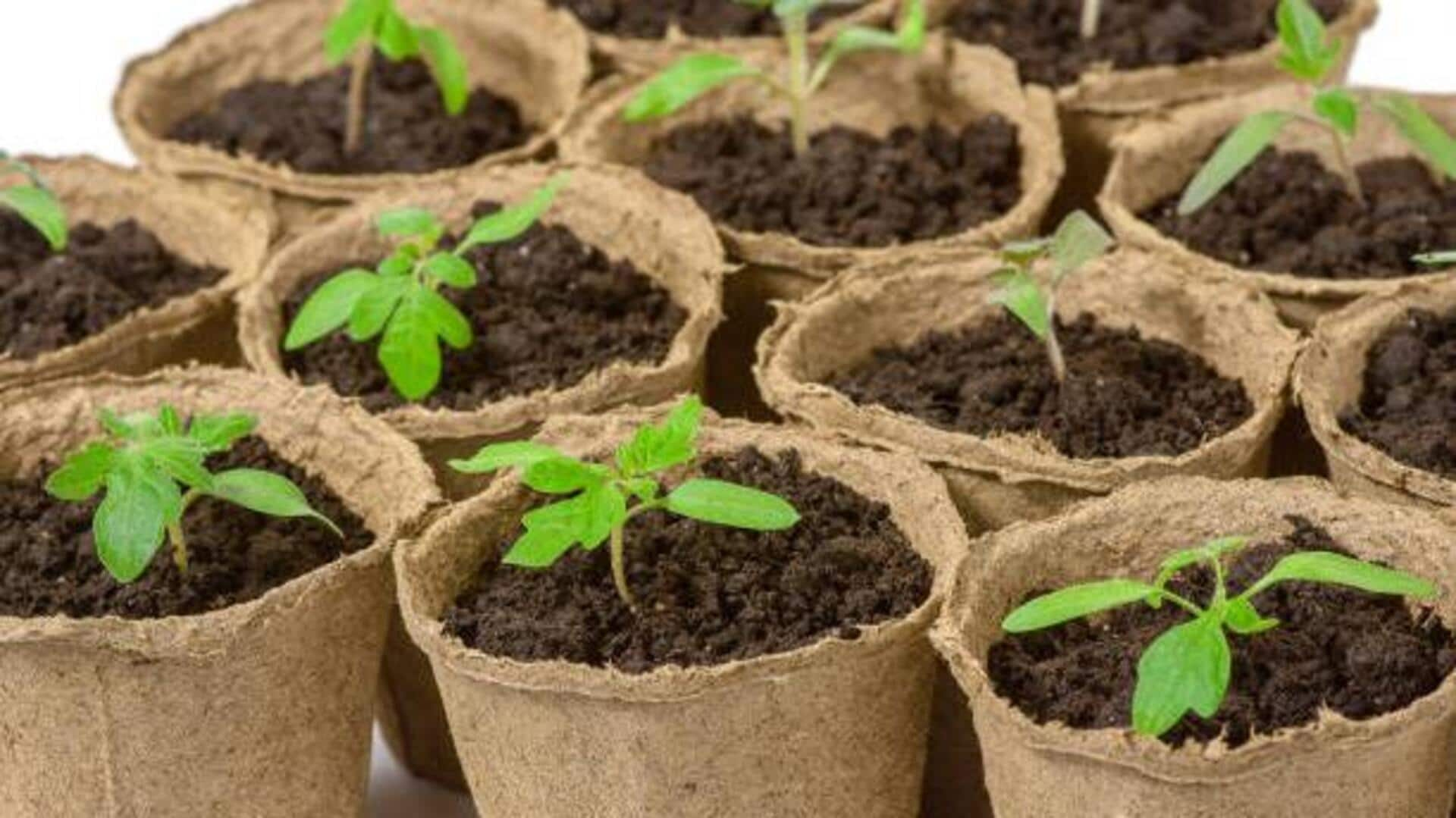
Ditch plastic: Try these biodegradable plant pots
What's the story
Biodegradable pots are becoming a favorite among gardeners and environmental enthusiasts, thanks to their eco-friendly nature. These pots decompose naturally, thereby reducing waste and promoting sustainable plant growth. They provide an ideal solution for anyone wanting to reduce their carbon footprint while nurturing plants. Here are some of the best biodegradable pots you can buy, along with their benefits and features.
Natural fibers
Coconut coir pots
Coconut coir pots are made from coconuts' fibrous husk, providing a sturdy but biodegradable option for planting. These pots allow roots to breathe and retain moisture well, promoting healthy plant growth. As they decompose, they enrich the soil with organic matter, enhancing its fertility. Coconut coir pots are suitable for various plants and can be used both indoors and outdoors.
Organic material
Peat pots
Peat pots are made of compressed peat moss, making them an ideal medium for seed starting and transplanting seedlings. They offer good aeration and water retention, making the conditions ideal for young plants. Peat pots are broken down in the soil, enhancing soil structure and nutrient availability. However, do source peat sustainably, as its extraction leads to environmental concerns.
Recycled content
Paper pulp pots
Since paper pulp pots are made from recycled paper products, they are a great eco-friendly option for gardeners. These light-weight containers break down easily in the soil without leaving behind harmful remnants. Paper pulp pots work best for temporary purposes such as starting seeds or growing annuals that will be transferred to bigger pots or garden beds subsequently.
Renewable resource
Bamboo fiber pots
Being biodegradable and renewable, bamboo fiber pots are a strong alternative, as bamboo grows quickly without the need of pesticides or fertilizers. Unlike plastic or other materials, which take hundreds of years to decompose fully (if at all), bamboo fiber offers great drainage without compromising on its structure over the years. They decompose naturally over time within your garden environment itself.